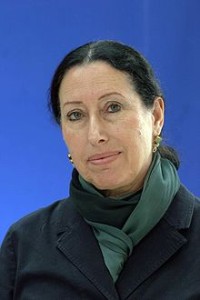My January 9, 2015 column in The Jerusalem Post generated a higher than usual number of comments, many of which were not particularly complimentary. In the piece, which addressed the United Synagogue Youth (USY) teen leadership’s decision on relaxing the group’s policy on “interdating,” I posited that since assimilation is natural – indeed inevitable – in the Diaspora, the Jewish people would be better served by lowering obstacles for those who wish to join the Jewish people.
There are many ways to do that within halacha (Jewish Law), but I’d like to propose another alternative, one that I’ll say at the outset is clearly unworkable in the mainstream Jewish world today. But bear with me, because this “thought experiment” may shed some insight on the process of change in rabbinic reasoning, ancient political in-fighting, and the surprising influence of Greco-Roman Law on what many tend to believe is outside the realm of history.
Here’s the crux of my argument: According to halacha, you’re Jewish if your mother is, regardless of the background of the father. Why not expand that definition to include patrilineal descent as well? It would address pressing issues in Israel – the many Russian Jews who have a Jewish father but not a Jewish mother, for example – and instantly make kosher the many marriages between Jews and non-Jews in the Diaspora.
Before you throw the shulchan aruch at me and point out with righteous indignation that this is exactly what the Reform movement decided back in 1983 and look how well that went in keeping Jews within the fold, just consider for a moment Jewish history. After all, for the first part of the Jewish story, Judaism was passed on by the father, not the mother.
A quick glance at Biblical genealogies makes this clear – see the many examples of Jewish kings who took non-Jewish spouses – and in inter-tribal marriage during the Biblical era, paternal descent was likewise decisive. A non-Jewish woman marrying a Jewish man didn’t even have to convert. She was now part of the tribe and her children would naturally be Jewish. Jewish family status continues to go by the father’s side to this day when determining whether one is a cohen (priest) or a levite.
Now, the rabbis in the years following the fall of Jerusalem to Rome may have had very good reasons for switching to matrilineal descent. Harvard professor and historian Shaye J.D. Cohen summarizes these in his comprehensive 1984 paper “The Matrilineal Principle in Historical Perspective.” These include the fact that you always know who the mother is but not necessarily who’s the father, and that there may have been a social problem to be solved following the mass rape of Jewish women by Roman soldiers during the wars of the first and second centuries of the common era. (There’s much more and the full paper is worth reading – it’s at http://bit.ly/1ugw3J2.)
 Yale Professor Christine Hayes also thinks Rome was involved, but from a legalistic perspective. Hayes is the author of the forthcoming book What’s so Divine about Divine Law? She spoke earlier this month at Jerusalem’s Kehillat Yedidya synagogue about the differences and similarities in how the Roman and Jewish traditions relate to the concept of “divine” when it comes to the law.
Yale Professor Christine Hayes also thinks Rome was involved, but from a legalistic perspective. Hayes is the author of the forthcoming book What’s so Divine about Divine Law? She spoke earlier this month at Jerusalem’s Kehillat Yedidya synagogue about the differences and similarities in how the Roman and Jewish traditions relate to the concept of “divine” when it comes to the law.
In the Roman legal tradition (actually “Greco-Roman” to be entirely accurate), Hayes explained in her talk, laws would be considered “divine” if they were grounded in reason and the “natural” world. Such laws would be rational, universal, eternal, unwritten and unchanging.
The concept of divine law in Judaism, on the other hand, was very different: It was “revealed” from a single source (rather than emanating from the natural world), written down, only meant for a specific people (rather than universal), and open to interpretation and change by those human leaders in positions of authority. We see that already in the Torah, where God delights in being contradicted and forced to change his mind. Abraham did it with Sodom; Moses beseeched God not to destroy the Israelites in the desert.
This openness to change found its way into the Talmud, often with good effects. The “eye for an eye” of the bible was transformed into monetary compensation, in perhaps the most famous example. Hayes described another that was new to me: When a man comes home from a journey, the Talmud states that “their wives are presumed to be ritually pure for them” in order that they may be together sexually. There may be questions about whether the wife is technically in niddah (with sex therefore being forbidden), but the rabbis were willing to bend this stringency, Hayes says, because “there are other values which they want to uphold.”
This concept of divine law being malleable contrasted with the Roman eternal approach. It drove the first century CE Jewish philosopher Philo of Alexandria crazy. Philo was a big fan of the Greco-Roman tradition and he did his best to try to reconcile Jewish and “natural” law, going so far as to write that “whoever will carefully examine the nature of the particular enactments [of the Mosaic Law] will find that they…are in agreement with the principles of eternal nature.”
The rabbis generally did not follow Philo. To wit, while Philo said that the laws dictating which animals are kosher and which are treife of course make logical sense, the rabbis considered them arbitrary and more a test of faith. The third century sage Rav commented that, “The commandments were given only to purify people…what difference does it make to Him whether one eats unclean or clean substances?”
Were the rabbis perhaps deliberately making a distinction in this case between Jewish and Roman law? If so, what about the example that started this discussion? Were the rabbis similarly comparing or contrasting the different legal systems when they made the switch from patrilineal to matrilineal descent?
To imagine the era in which the Talmud was codified as divorced from the world around it strains credibility. Nor would it make sense to assume that the kind of intra-Jewish (and Israeli national) politics that so defines the modern Jewish experience didn’t exist 2,000 years ago.
When it came to the question of descent, who benefited the most from the patrilineal argument? That would be the Sadducees, or priests, who were locked in a fierce battle for supremacy with the Pharisees, or rabbis. It wouldn’t have been the first change initiated by the rabbis meant to place a wedge between them and the priests who presided in Jerusalem.
 Hebrew University Professor Rachel Elior speaks frequently on the importance of the calendar in the fight between these two groups. The priests held by a solar calendar; the rabbis promoted a lunar one. The two were completely out of sync. Yom Kippur on one calendar would never fall on the same date as the Day of Atonement on the other. How could you get along if you couldn’t celebrate the holidays together?
Hebrew University Professor Rachel Elior speaks frequently on the importance of the calendar in the fight between these two groups. The priests held by a solar calendar; the rabbis promoted a lunar one. The two were completely out of sync. Yom Kippur on one calendar would never fall on the same date as the Day of Atonement on the other. How could you get along if you couldn’t celebrate the holidays together?
The reason for the dueling datebooks was as much political as it was religious, Elior says. In an article in The Jerusalem Post from a few years back, Elior explains that the rabbis “were unhappy about the exclusiveness of the priests and the power they had accrued.” Winning people over to the rabbis’ lunar cycle ultimately proved effective.
Could the same motivation be behind the change from patrilineal to matrilineal descent? After all, what could split the people more completely than the basic definition of who is a Jew? It certainly has that effect today.
I prefaced this piece as a thought experiment and even Shaye Cohen agrees. “Does my analysis have halachic implications?” he asks. “The answer is no. Jewish law is based on precedent, and what the historian can contribute to halacha is the collection of precedents and the analysis of legal history.” History and halacha, he concludes, “are autonomous disciplines.”
The late British Rabbi Louis Jacobs goes further in an analysis he published on Cohen’s treatise in 1985. Regarding matrilineal descent, he writes, “It is recorded as the law in all the Codes without dissenting voice and has been the universal norm in all Jewish communities. For such a law to be changed, only the weightiest religious and ethical advantages will suffice.”
But maybe it’s time. Ironically, the positive flexibility and openness to change that was the hallmark of so many Talmudic rulings has now been eclipsed by the very system the rabbis tried to discount, concludes historian Hayes. The modern Western world is the direct beneficiary of the Greco-Roman tradition, she explained in her talk, with its fundamental vision that divine law must be unchangeable. Jewish Law, in the centuries that have passed, has become similarly rigid,
I’m not holding my breath for a change in the laws on descent to put patrilineal on equal footing with matrilineal. But is it, as Jacobs suggested, weighty enough to warrant further discussion? I’ll leave that for the next round of talkbacks.
The fireworks first started when this article was published on The Jerusalem Post.

